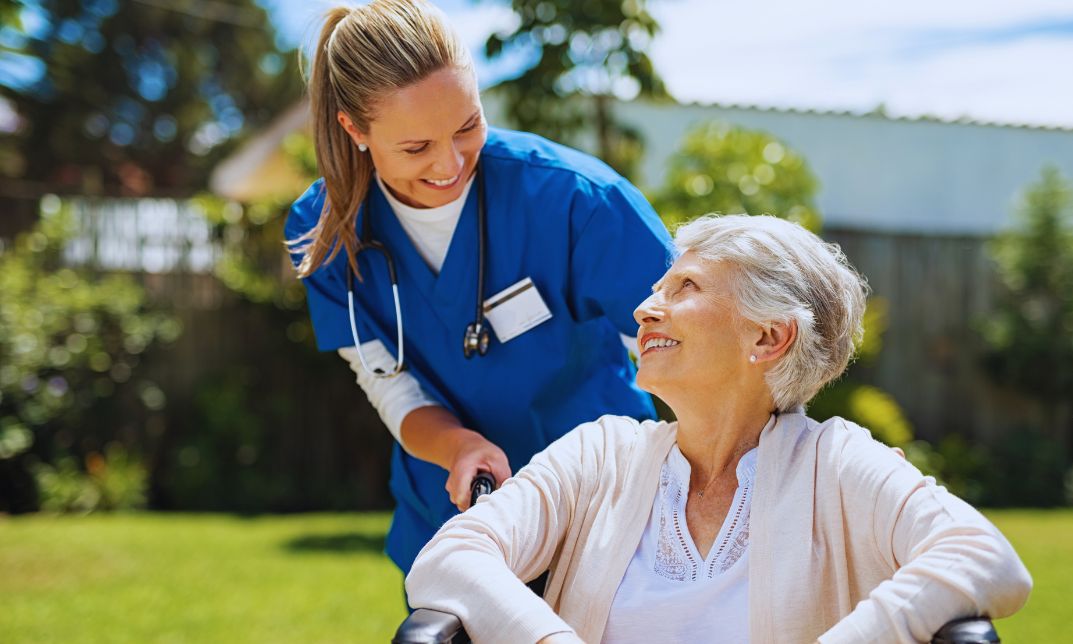No products in the basket.
Let’s be honest: when someone says “CPD,” you probably picture another mandatory course squeezed into an already packed week. But what is CPD in health and social care? It’s not just another form to tick. It’s a way to keep your head in the game, stay safe, and make sure the people you care for get the best from you.
You know those little moments that stick with you? When someone opens up for the first time. When you handle a tricky situation better than you did last time. That’s growth. That’s learning. And believe it or not, that counts as CPD too.
What Is CPD in Health and Social Care?
CPD stands for Continuing Professional Development. It’s how people in health and social care keep learning while they work. It covers formal training, but also real-life lessons, reflections, and skill-building.
You might log hours from a webinar, but CPD can also come from shadowing a colleague or reading a new policy. It could be a conversation that made you rethink how you do something. It doesn’t always come with a certificate—but it does count.
In the UK, most regulated roles require CPD to stay registered. But even if your role isn’t regulated, CPD makes your job easier, safer, and more rewarding.

CPD Isn’t a Box-Ticking Task
We’ve all done those online modules that feel like they were written in another language. You click through slides while thinking about dinner. That’s not CPD. Not really.
Real CPD sticks. It makes you pause. It shows up in how you speak to someone or handle a problem. It’s when you realise, “I’ve done this before, and I know what works.” It doesn’t need to be fancy. It just needs to matter.
Why CPD Helps You—Not Just Your Employer
Let’s face it, training days often feel like they’re more for managers than for you. But CPD is personal. It helps you:
- Feel more confident
- Handle tough days better
- Know what to do in a crisis
- Move forward in your career
Maybe you want to become a senior support worker. Maybe you want to specialise in dementia care. CPD gives you that path. It shows you where you’re growing and where to go next.
What Counts as CPD?
A lot more than you think. Here are some examples:
- Courses and workshops
- Webinars and e-learning
- Reading a new policy or care standard
- Reflecting on a situation in a supervision session
- Peer mentoring
- Attending a care conference
- Researching a condition after seeing it for the first time
Even writing a journal entry after a shift can count. If it helps you learn or reflect, it’s CPD.
How to Record CPD (Without It Taking Over Your Life)
Start simple. Keep a notebook or use your phone. Write what you did, what you learned, and how it helped your practice.
Example: “Shadowed Emma during handover. Noticed how she clearly explained the care plan to the family. Will use that style next time I update a parent.”
You don’t need to write essays. You just need to show that you’re thinking about your work and learning from it.
What Is CPD in Health and Social Care for Regulated Roles?
If you’re a nurse, social worker, or registered with the HCPC, CPD isn’t optional. You have to keep a record and show evidence to renew your registration. Each regulator has its own rules, but most ask for:
- A certain number of CPD hours
- A mix of learning types
- Reflective accounts
- Proof that your learning relates to your role
If this sounds intense, remember: a lot of what you already do might count. You just need to log it.
CPD and the Care Certificate
New to care? CPD builds on what you learned during the Care Certificate. That’s your starting point. CPD keeps the journey going. The Care Certificate lays the foundation. CPD adds the real-life experience. It’s how you turn the theory into skill.
What Makes Good CPD?
Good CPD is:
- Relevant: It links to your role and goals
- Reflective: It helps you think, not just tick boxes
- Recorded: Even if it’s short, you keep a note
- Regular: Not once a year—make it part of your month
It should feel useful. It should feel real. If it doesn’t help you care better, ask why you’re doing it.
How CPD Makes Care Safer
Training isn’t just for career moves. It’s about safety. Knowing how to spot abuse, handle medication, or talk to someone in distress isn’t just nice to have. It saves lives. CPD gives you tools to respond the right way when it counts. And in care, it always counts.
How CPD Feeds Your Confidence
Ever had a day where nothing shakes you? Where you know exactly what to say, what to do, and when to ask for help? That’s what good CPD does. It helps you trust your skills and backs your gut feeling with real knowledge. It doesn’t mean you stop making mistakes. But it does mean you learn faster when you do.
Real Talk: How to Fit CPD Into a Busy Week
We get it. Long shifts. Short breaks. Paperwork for days. But CPD doesn’t need to be another burden. Here’s how to make it work:
- Use team meetings to share learning
- Reflect during supervisions
- Keep a small notebook on shift
- Do bite-size learning (15 minutes counts)
You don’t need a whole afternoon. You need intention. A moment to pause and think, “What did I learn today?”
CPD and Career Growth
Want to move up? Specialise? Switch paths? CPD helps build the skills you need to make those changes. It shows managers and new employers that you care about your work. And it helps you stay ready when opportunities come up. You won’t need to catch up. You’ll already be there.
How Managers Can Support CPD
If you’re in a leadership role, support your team’s learning. Give people time to reflect. Share resources. Celebrate when someone logs a win. Make CPD part of everyday talk. Not just a tick-box during appraisals. When people grow, the whole team gets stronger.
Support Worker to Support Worker: Why CPD Matters
Let’s keep it real. This job is tough. It can wear you down. But when you learn something new, or handle a situation better than you did last year, it reminds you why you’re here. Helping someone through a tough moment? That’s experience. Writing about what you learned from it? That’s CPD. It’s not about extra work. It’s about recognising the value of the work you already do.
Final Thoughts
So, what is CPD in health and social care? It’s more than training and more than forms. It’s about staying curious, staying safe, and staying proud of the job you do. CPD helps you grow. It helps you care better. And it helps you keep showing up—with skill, confidence, and heart. You’re not just logging hours. You’re building a career that matters.
Want to feel confident in your care role and grow your skills? Enrol in our CPD-certified online Health and Social Care courses at Course Cave.




